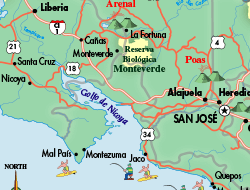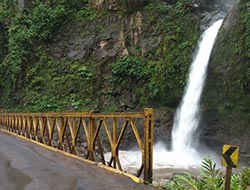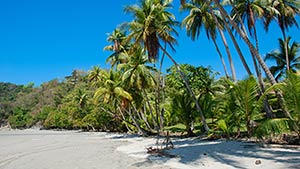The Impact of Tourism on Conservation
Hanging Bridges at SelvaTura
Home to around 5% of the planet’s biodiversity, Costa Rica has an array of stunning landscapes, tropical beaches and lush rainforests. Although this small country represents only a tiny fraction of the world’s land mass, with a land area of around 51.100 kilometers, it is a biodiversity Mecca. Its geographical position has provided it with numerous and varied micro-climates and a great amount of natural wealth.
Possitive Approach
There is an incredible variety of ecosystems in Costa Rica that house a stunning display of flora and fauna. Devoted to the conservation of natural resources, over a quarter of the country is protected by the national park system and draws millions of tourists each year. The impact of tourism has the potency to increase public awareness and encourage the appreciation of nature. This leads to environmentally conscious behavior, generates jobs, heightens the level of understanding in people and brings them closer to nature. Playing a key role in providing ecological information, sustainable tourism has an enormous positive approach and helps to educate the tourists of the consequences of their actions on the environment.
Sound eco-friendly practices and management of the tourist facilities, volunteer conservation efforts, especially the eco hotels, provide increased benefits to the natural areas. Careful planning and controlled land development helps prevent damaging mistakes and assists in sustainable tourism.
Eco Hotels
Eco hotels in Costa Rica are a part of the sustainable tourism efforts. These hotels are a model ecotourism project, providing employment to the local community and promoting environmentally sound practices. The government encourages hotels to conserve energy through passive design and construct with eco-friendly material. These hotels have a reasonable approach towards recycling, waste and water management. Some hotels even have volunteer conservation programs and use solar power energy for environmental purposes. Tourism contributes directly to the conservation of vital habitats. Revenues and funds collected from the park fees and other sources facilitate in the management and preservation programs of the protected areas.
In Costa Rica, tourism has significantly contributed to conservation and restoration of the biological diversity of the natural resources. The creation of national parks, wildlife reserves and private land holdings are helping protect these valuable assets and allowing them to thrive. Regulatory measures are however necessary to control the negative impacts of tourism in the protected areas. This includes limiting the tourist movement and controlling their activities so that the sensitive habitats can be sustained.
7 Days / 6 Nights
Starting at $978 per person
10 Days / 9 Nights
Starting at $1,440 per person













.jpg)
.jpg)



